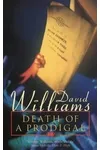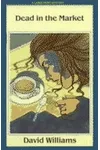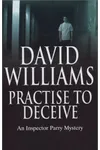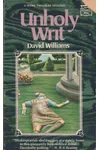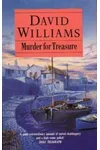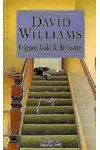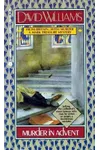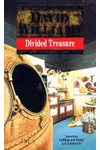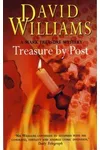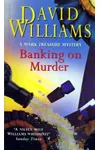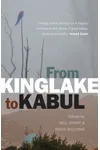Picture a Welsh storyteller who swapped boardrooms for crime scenes, crafting mysteries that keep readers guessing—meet David Williams! Born in 1926 in Bridgend, Wales, this former advertising titan turned crime fiction author after a life-altering stroke. His charismatic detective, Mark Treasure, and meticulous narratives earned him a cherished spot in the Detection Club, blending wit, faith, and intrigue.
Williams’s journey from naval officer to crime novelist is as captivating as his whodunits. His knack for detail and deep Anglican faith infused his stories with moral depth, making them more than just mysteries. Let’s dive into the life and legacy of this unsung hero of crime fiction!
The Making of David Williams
David Stuart Williams entered the world on June 8, 1926, in Bridgend, Wales. Educated at Hereford Cathedral School and St John’s College, Oxford, where he studied Modern History, his studies paused for three years of service as a Royal Navy officer during World War II. Post-war, Williams dove into advertising, starting as a medical copywriter and climbing to lead David Williams and Ketchum, one of Britain’s top agencies. His sharp mind and creative flair thrived in this high-stakes world—until a severe stroke in 1977 changed everything. Partial paralysis and speech challenges forced him to step back, but they also sparked a new chapter: full-time crime writing.
David Williams’s Unforgettable Stories
Williams’s crime novels, often featuring the suave merchant banker Mark Treasure, are masterclasses in classic whodunits. His debut, Unholy Writ (1976), introduced Treasure, an Oxford-educated sleuth whose wit and charm navigate complex mysteries. The series, spanning 17 novels, blends humor with sharp plotting. For instance, Murder for Treasure (1980) sees Treasure unraveling a deadly scheme tied to a Welsh estate, showcasing Williams’s knack for local flavor.
Later, Williams created Chief Inspector Merlin Parry of the South Wales Constabulary, debuting in Last Seen Breathing (1994). Parry, paired with Sergeant Gomer Lloyd, tackles cases like a widow’s suspicious death in a quiet market town. Williams’s style—precise, witty, and morally grounded—reflects his advertising finesse and Anglican roots. His novels, twice shortlisted for the Crime Writers’ Association Gold Dagger Award, balance suspense with human insight, making them timeless.
With 23 novels, including the Treasure and Parry series, Williams carved a niche in British crime fiction. His experience in advertising and faith lent authenticity, while his post-stroke resilience fueled his prolific output. Fans cherish his ability to weave intricate plots with relatable characters, often spiced with gentle humor.
Why David Williams Matters
David Williams’s impact lies in his ability to craft intelligent, morally rich mysteries that resonate beyond the page. His Mark Treasure series brought sophistication to the amateur sleuth trope, while his Parry novels grounded crime in Welsh culture. Joining the Detection Club, an elite group of crime writers, cemented his influence. His stories, rooted in faith and human nature, offer both escapism and reflection, earning him a loyal, if under-the-radar, following.
Williams’s transition from advertising to authorship after a life-altering stroke inspires aspiring writers, proving resilience can birth creativity. His legacy endures in libraries and secondhand bookshops, where readers still discover his clever plots and charming detectives.
- Born: June 8, 1926, Bridgend, Wales
- Key Works: Unholy Writ (1976), Murder for Treasure (1980), Last Seen Breathing (1994), Practise to Deceive (2003)
- Awards: Twice shortlisted for the Crime Writers’ Association Gold Dagger Award
- Notable: Member of the prestigious Detection Club
Ready to crack open a classic mystery? Snag Unholy Writ or Last Seen Breathing and dive into David Williams’s thrilling world of crime and cleverness!

